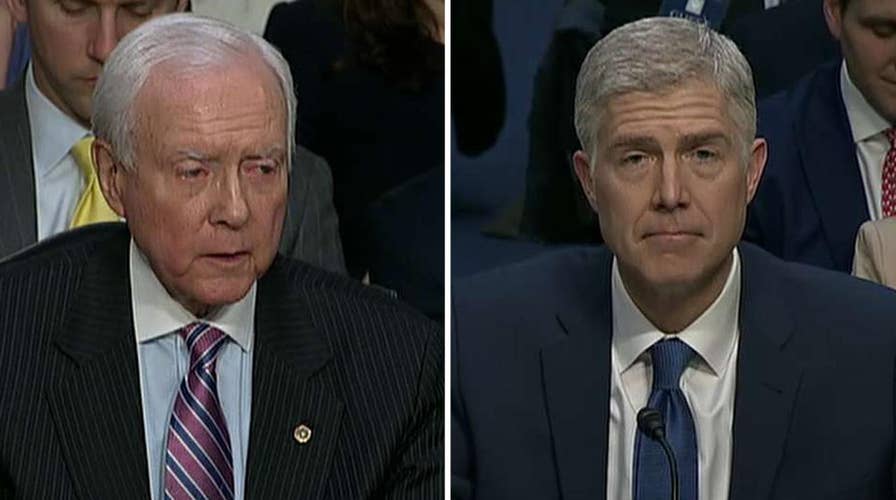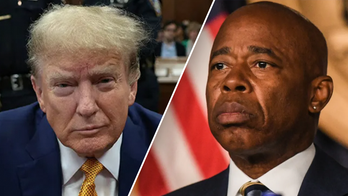Sen. Hatch praises Judge Gorsuch at confirmation hearing
Mike Emanuel reports from Capitol Hill
Judge Neil Gorsuch, President Trump's nominee to replace Justice Antonin Scalia on the U.S. Supreme Court, faced senators Monday, kicking off what promises to be a grinding confirmation process.
Gorsuch was nominated Feb. 1, and despite his stellar record, which includes a Harvard law degree and a decade on the 10th Circuit Court of Appeals, he could face a tough confirmation battle. Senate Democrats have signaled that they will use whatever procedural means are available to try and stop Gorsuch from being name to the high court.
"We are not here to review your record in a vacuum, whether reasonable, mainstream nominee or not," Sen. Dianne Feinstein, D-Calif., told the nominee during her opening statment. "[Supreme Court] decisions impact the American people."
"It's important Democrats and Republicans not roll over on this pick."
Gorsuch gave a statement to the Senate Judiciary Committee Monday afternoon, defending his record and pledging to be fair and follow the law.
"I have ruled for disabled students, prisoners, and workers alleging civil rights violations," he said. "Sometimes, I have ruled against such persons too. But my decisions have never reflected a judgment about the people before me — only my best judgment about the law and facts at issue in each particular case."
Hearings will resume at 9:30 a.m. Tuesday, and could stretch for several days before going to the full Senate. Sen. Ted Cruz, R-Texas, said he expects Gorsuch to take his seat on the high court by mid-April.
Observers expect other Democrats to battle hard against Gorsuch's confirmation, in part because Republicans blocked President Obama's lame-duck nomination of Merrick Garland to the court.
The stakes are enormous, not only for the nominee but also for Trump, who selected him from a list of 21 potential candidates announced during the presidential campaign. Aides say President Trump hopes a successful confirmation will build momentum for his separate political agenda, and bring a measure of stability and public confidence to what has been a challenging two months in office.
In the broader realm, filling the seat left by the death of Scalia will ensure the high court keeps a shaky right-leaning majority. And having that fifth conservative vote will help guide the administration as it makes strategic decisions about which high-profile issues to pursue in court-- like immigration, the environment, transgender rights and expanded executive authority.





